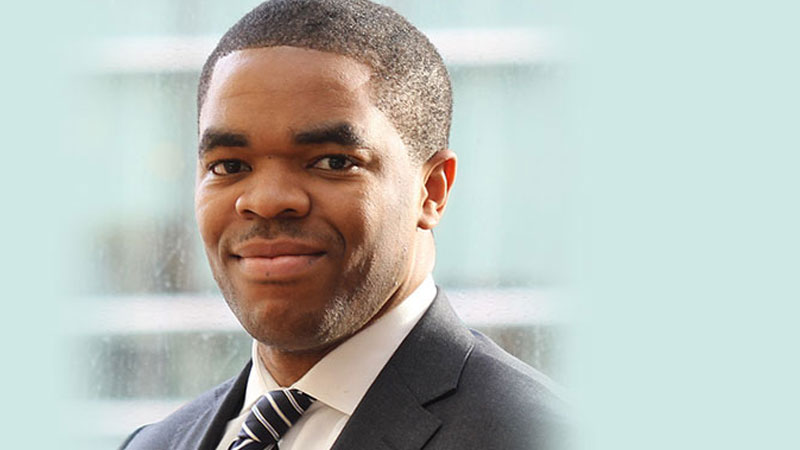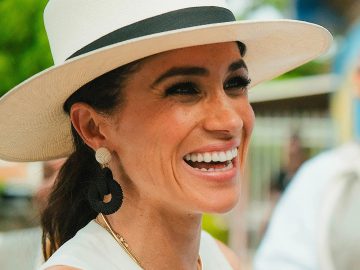I grew up in Nigeria and completed both my undergraduate and graduate school degrees in England. This experience provided a solid background for me in understanding the value of inclusion and a strong sense of multiculturalism. Through these experiences, I learned that the value of our collective efforts can be incredible if we encourage diverse perspectives and people driven by merit. However, we have to create the right culture to attract this diversity.
I joined JPMorgan Chase in 2005 and have been thrilled to have the opportunity to work with teams from Singapore, Hong Kong, Brazil and of course New York and London throughout the years. Beyond the diversity of knowledge, experience and culture that I encountered in these interactions with my global colleagues, I have also benefited from the various diversity networking groups that JPMorgan Chase has created for its employees. As one example, I participate in the BOLD (Black Organization for Leadership Development) group, which includes mentoring and recruiting at different levels. These groups have supported me throughout different moments in my career and I’m pleased to be able to share my own diverse career perspective and advice with others.
How did you set yourself up for a successful career?
I really like the quote, “Finding a job you like means you never have to work again.” Success appears to happen when you are committed to continuous development in an area that you genuinely enjoy, with the understanding that it takes team work to make a real difference.
So the first step was to get involved in an area I really enjoy. Given my background in Engineering and Computer Science as well as the exciting emergence of automation and algorithms in trading, I was particularly interested in technology around systems and trading. This wasn’t easy as electronic trading looked very different at the time, so I tried a few things and eventually arrived at the opportunity in Foreign Exchange.
Personal and professional development requires candid feedback and guidance to understand your performance and make changes. I have been fortunate to have a very wide range of colleagues and managers that have provided candid feedback, which I have taken constructively. Finally, understanding the value and potential of cohesive team work really enabled me to think more like an “owner” than an individual contributor.
Who have you asked for advice? Did you have mentors at the firm?
I probably have asked just about everyone I have worked with for advice on some aspect of work, including cases where I already have a strong view on the decision, as I prefer to hear from a variety of perspectives when considering any action. In some cases, the creative suggestions have actually come from the most junior member of the team!
Mentors can be extremely valuable in helping you understand how you fit into a company as your career develops, as well as in sharing personal experiences that you can directly relate to. I have had some great mentors here at JPMorgan Chase who has been open to discussing professional and personal matters. I often had to find them myself, but the responses and support has been readily available. In some cases I have approached potential mentors directly after observing noteworthy performance in leadership, presentations or other areas I felt I could learn from. Initially, this can clearly be quite daunting especially when a potential mentor is in a senior position, and likely very busy; but it is certainly worth trying. In every case I have found that mentors are indeed available, and willing to help at least on a casual arrangement.
What challenges did you face when you came into your current position or a recent one?
When I took on my current role in leading the team, the world suddenly became much larger. I had to transition quickly from focusing on delivering specific electronic trading objectives, to understanding how the business fits into JPMorgan Chase and the expectations of the team across all regions.
Multitasking is probably the biggest single change to the working day, and doing a few things well is always better than underperforming in many areas. Learning how to prioritize work objectives and utilize relationships efficiently became the key to performing in my current position. It is an ongoing learning process.
What is your secret to career mobility?
At the core of career mobility is flexibility–the willingness to move from an area of comfortable expertise to the unknown with the confidence and inspiration to learn and develop personally as well as professionally. This is important, as mobility opportunities could present themselves in various forms, from the subtle suggestion of a colleague to a manager, to the specific job posting internally. Cultivating a personal brand through your performance and relationships places you in the right environment to be seen as the “energetic can do” individual when opportunities do arise.
“Cultivating a personal brand through your performance and relationships places you in the right environment to be seen as the “energetic can do” individual when opportunities do arise.”
In my experience, you may not be able to create the mobility opportunity at a specific time, but they do come quite often, so flexibility and track record will make you most prepared to meet that opportunity.



